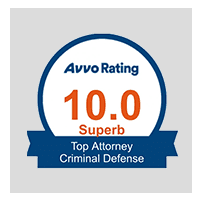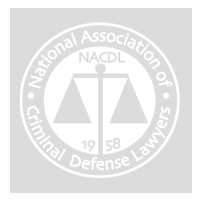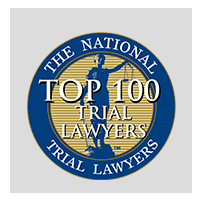Criminal Defense Attorney in Lexington, SC
Understanding the Criminal Defense Process
What can I expect from the criminal defense process?
Providing an Aggressive Defense Against Your Charges
At the Law Office of James R. Snell, Jr., LLC, we want to help you understand
what to expect in the following months following a criminal charge. By
understanding the South Carolina court processes relevant to your case,
you can ensure that you remain in the best position possible to have your
charges favorably resolved.
The criminal defense process is both complex and confusing. Most individuals
who are under investigation feel overwhelmed by the judicial process and
the activity that is taking place. If you do not know what to expect in
your case, it is essential to talk to a lawyer who knows the penalties
you could be facing. If you develop an understanding of not only the criminal
process but also your own case, then you can be better prepared for the
process. You will be able to make informed decisions and have confidence
that you are doing everything in your power to get your charges lowered
or dismissed. At the Law Office of James R. Snell, Jr., LLC, our lawyers
are prepared to provide you with a basic understanding of the criminal process.
Pre-Arrest Police Investigation
Some individuals are fortunate enough to know in advance that they are
under investigation by law enforcement. This may come in the form of being
accused of breaking the law or being contacted directly by the police.
We recommend that anyone at this stage of the process remain silent, and
not talk about their situation with their accuser, other individuals,
or law enforcement. Everything said can and will be used against them later on.
Bond Court
After someone is arrested the police will transport them to the local detention
center or jail. They will first be booked in. This will include being
fingerprinted, having a mug shot taken, and being evaluated by jail medical
staff. Usually, within 24 hours, they will be taken to Bond Court to appear
in front of a Magistrate judge. The purpose of Bond Court is to determine
if they will be allowed to be released from jail while the charges are
pending. The judge will set any conditions on this release, usually involving
the posting of a cash deposit with the court and other conditions to avoid
contact with the alleged victim. The deposit, called a bond, can also
be posted with the assistance of a bail bondsman.
Money paid to a bail bondsman is kept by them as their fee, even if the
defendant goes to court as required. Money that is paid directly into
the court is returned as long as the defendant fully complies with all
the conditions of their bond. Defendants all have the right to be represented
by an attorney in Bond Court. A lawyer can help persuade the judge to
set a lower bond, which may save a significant amount of fees in the event
that a bail bondsman is used to post the deposit with the court. In serious
felony cases, it is almost always a good idea to retain an attorney to
appear on the Defendant’s behalf at Bond Court. Our attorneys are
available to appear in Bond Court anywhere in South Carolina, even in
emergency situations.
Preliminary Hearing
Defendants who have cases pending in General Sessions are eligible to request
a preliminary hearing. This must be done within ten days of the Bond Court
date. A preliminary hearing is a probable cause hearing conducted in front
of a magistrate judge. This judge will determine if it is more likely
than not that a crime occurred, and more likely than not that the defendant
is the one responsible.
We believe that our client’s interest is best served by having a
true adversarial hearing where a genuine challenge is made. Preliminary
hearings are not only a chance to challenge arrests but also to have the
investigator go “on the record” regarding what was and wasn’t
done as part of the police investigation. This can be powerful information
later on that can significantly aid the defense.
For this reason, if we are timely retained, we will submit the request
for the preliminary hearing and will represent our client at such hearing
as part of our standard defense services. At the end of the preliminary
hearing, the judge can either allow the charges to continue to General
Sessions for prosecution, modify them, or dismiss the case for lack of
evidence. Regardless of the decision made by the court at this stage,
the Solicitor’s office is still allowed to prosecute the case if
they choose to.
Initial Appearance
Defendants who have cases prosecuted in General Sessions will be given
a first court appearance at Bond Court. This is called a first appearance
in most counties. At the first appearance, the defendant will check in
with the prosecutor’s office and will then be given a date to return
called a follow-up appearance. The initial appearance is not a hearing
date or a trial date. Defendants will not be appearing in front of a judge
and will not be required to enter a plea or explain the circumstances
of their arrest.
Everyone charged with a General Sessions offense should have retained a
lawyer prior to their initial appearance date. Usually, the initial appearance
can be handled in 30-45 minutes. In some counties, defendants can avoid
having to go to their initial appearance if they have retained a lawyer.
Appearances cannot currently be waived in Lexington or Richland Counties,
but this may be possible in Spartanburg or Charleston.
Magistrate / Municipal Court Procedures
Misdemeanor cases prosecuted in Magistrate or Municipal Courts are handled
differently than those in General Sessions. The initial date provided
in Bond Court or written on a ticket is the trial date. Defendants who
appear in court on that date are going to be expected to either plead
guilty or face a trial by the judge (called a bench trial) right away.
In most cases, we do not believe that our clients should plead guilty
or face a bench trial at their initial court date.
By doing so defendants give up important legal rights, including the right
to a pre-trial discovery and many other criminal defense techniques that
can help result in a more favorable outcome to the charges. Typically,
we will notify the court and prosecutor on our client’s behalf in
advance of their court date that we are contesting and challenging the
charges. This will result in the first court date being challenged. Our
client will not be required to appear. This procedure is authorized by
the South Carolina Supreme Court and is approved by every bail bondsman.
At the same time, we file the notice of a contested case, we will also
file motions related to pre-trial discovery to obtain the evidence against
our client. We also may file motions seeking to suppress evidence against
our client such as drugs discovered by improper law enforcement techniques.
The next event is usually a pre-trial conference held months after the
initial “bench trial date”. Here without the threat of an
imminent trial, we can discuss having the case resolved with the prosecutor
such as a dismissal, plea bargain, or referral into pre-trial intervention
(PTI). Otherwise, the case can be scheduled for a full trial.
Criminal Trial
All defendants in South Carolina who are charged with any criminal or traffic
offense are entitled to a fully contested trial. We normally try all criminal
cases in front of a jury. All jurors must unanimously determine the verdict.
There are twelve jurors in General Sessions cases and six in Magistrate
or Municipal Court cases. Cases are not normally scheduled for trial for
several months or more after the initial arrest. Defendants have numerous
important rights at their trial, and in fact, have more rights than the
prosecutor or the judge. One of the roles of a defense attorney during
the trial is to ensure that those rights are enforced and that the court
and the jury are given reasons why the charges should either be dismissed,
or a not-guilty verdict should be returned.
Other Steps
There are numerous other parts of the process that we can review with you
during your initial consultation. These Include:
- Pre-Trial Discovery - How we obtain the prosecutor’s evidence in advance of trial and use it to prepare an effective defense.
- Negotiations – In some cases, it can be possible to negotiate a reduction in charges or sentence, to avoid having to go to trial.
- Preliminary Motions – There can be occasions where it is necessary to have additional court hearings related to legal issues that can arise during a case. This might include motions to reduce bond, resolve discovery disputes with the prosecutor, enforce subpoenas issues, or suppress evidence against our client.
- Appeals – Anyone convicted of a crime in South Carolina has the right to appeal. This right pertains to all types of charges, from simple traffic infractions to major felonies. We can discuss this right including appeals in Federal Court if necessary.
Understanding the Seriousness of Your Case
What to Expect When You Are Facing Charges in Lexington, SC
To fully understand the severity of your case, you should know the small
details of the case and view it from the perspective of law enforcement.
Law enforcement officials may be looking at the situation in an entirely
different light than you. After you understand the situation and the intimate
details of your case, it is easier to grasp how serious your case is perceived
to be. It is also valuable to retain the help of a lawyer who can sift
through each element of your case and give you a synopsis of what to expect.
Consulting Our Lexington Criminal Defense Lawyer
The most helpful aspect of going through your case is gaining a comprehensive
understanding of the situation that you are experiencing. At the Law Office
of James R. Snell, Jr., LLC, we want to make sure that you are well-informed
and prepared to take on your case. You do not want to go through this
situation believing that your case is not a serious issue when law enforcement
sees it in an entirely different light. As you brave through your criminal
defense case, you will want to have a Lexington criminal defense lawyer
by your side who is prepared to answer your questions.
It is also important that you ask the important questions that will make
a difference in your case. You should be completely prepared for any situation
you may encounter. The way to get informed and prepared to take on your
case is by retaining the legal services of a Lexington criminal defense
lawyer from our office. Our team can provide legal guidance and representation
to individuals in Lexington, Columbia, and other cities and communities
in South Carolina. Call today to schedule your case evaluation to begin
fighting for the best possible results.
Frequently Asked Questions
What types of criminal defense matters do you offer representation for?
We represent clients in the defense of criminal charges in all South Carolina
Federal and State level courts. This includes all Federal Courts, Magistrate
Courts, Municipal Courts, General Sessions, and juvenile proceedings in
the Family Court. We also provide services in criminal appeals, pardons,
and post-conviction relief (PCR) proceedings.
Do you offer free consultations?
We offer free in-person consultations in our office located in downtown
Lexington, South Carolina, for criminal defense matters. To schedule your
consultation please contact our office by calling (803) 359-3301 or contacting
us through this site. Initial consultations are provided on a confidential
and legally privileged basis. You will have a chance to meet with an attorney
to discuss your case and to ask any questions that you may have. Please
bring copies of your arrest paperwork (ticket(s), warrant(s), bond paperwork,
etc.) with you to the appointments.
How much will it cost to hire this office for my case?
Criminal defense services are unique for each client. We will set a fee
for your case after we have had an opportunity to discuss the specifics
of your case during the initial consultation. There is no set fee for
your type of charge. Generally, the fee will take into account the level
of charge, the complexity of the facts, the nature of the required investigation,
whether there are unusual legal issues involved, and the likelihood of
whether your case will result in a trial, dismissal, plea-bargain, or
entrance into a diversion program such as pre-trail intervention (PTI).
Although we are not the least expensive criminal defense firm, every effort
is made to charge a reasonable fee based on the amount of work that will
go into your case.
If the police want to ask me questions, what should I do?
If you are suspected of being involved in a crime, you should never talk
to the police without first consulting with a Lexington criminal defense
attorney. You have an absolute right not to agree to meet with the police
or speak with them. We can help you determine how best to respond to a
police investigation and can instruct the police on your behalf to direct
all further questions or correspondence to our office. There are several
dangers to agreeing to meet with or speak to the police. Anything you
say, or anything the police want to say that you said, can be repeated
in Court and used as evidence against you. Both written and verbal statements
can be used against you in Court.
If someone is arrested, how can they be released on bond?
Soon after someone has been arrested, usually within 24 hours or less,
they will be taken before a Magistrate judge for a bond hearing. The judge
will consider the defendant's background and prior criminal history, along
with the present allegations in determining what the bond amount will
be. If a personal recognizance bond is set, then the person can sign themselves
out of jail. If a cash bond is set then the defendant has to post that
amount with the Court or hire a bail bondsman to post it for them. Cash
that is deposited directly with the Court may be returned at the end of
the case. Fees paid to a bail bondsman are generally non-refundable as
they are the bondsman’s payment. Jail discharge procedures take
time, so it may be 4 to 5 hours after bond Is posted before someone is
actually released.
How do I determine if my charges are a misdemeanor or a felony?
In South Carolina, it is not always easy to determine if charges are misdemeanor
or felony level. Generally, all charges that are referred to the Magistrate
or Municipal Court are misdemeanors. Felonies are always referred to the
General Sessions Court. Some serious misdemeanors are still referred to
General Sessions and may allow for a possible sentence of up to ten years.
During the initial consultation, we will make sure that we review whether
the specific charge our client is facing is a misdemeanor or a felony.
If the police did not read me my rights does that mean that my charges will be dropped?
Not necessarily. The only criminal offense in South Carolina that ordinarily
requires the reading of Miranda rights is driving under the influence.
Otherwise, Miranda is only relevant to whether or not post-arrest statements
made by a defendant will be allowed into evidence at trial. If your statements
are a significant part of the evidence against you, the fact that Miranda
was not read could result in those statements not being allowed as evidence
in your case. This could result in a dismissal, reduction in charges,
or a not-guilty verdict at trial.
If I just want to plead guilty and get it over with, why should I hire a lawyer?
Many people mistakenly think that if they are guilty, their case is hopeless
and that there is nothing that can be done to help them. This is not true.
A criminal defense attorney can help you determine what the potential
penalties will be for pleading guilty. Some crimes come with mandatory
jail sentences or driver’s license suspension. Oftentimes, a lawyer
can help negotiate a reduced charge, a lesser sentence, or entrance into
a diversionary program. Finally, we can help review your case with you
to determine if you would have grounds to challenge a police search or
interrogation technique that could result in evidence against you not
being allowed at trial. Always consult with a Lexington criminal defense
attorney before going to court.
I have heard about pre-trial intervention (PTI). Is this a good program for me?
Pre-trial Intervention is a diversion program that is run by each Solicitor’s office in
South Carolina. Cases are referred to the program by agreement of both
the prosecutor as well as the defendant. Both misdemeanor and felony cases
may be allowed into PTI. Defendants who complete the program will have
their charges dismissed and the record of the arrest removed. To qualify
for PTI you must have never attempted the program before in South Carolina
or any other state. You must also have a minimal prior criminal record.
PTI can be a great option for many defendants. Unfortunately, it is not
automatically offered by the prosecution, even for those with no prior
record and only more minor charges.
Can I use real estate to pay for legal services?
In certain circumstances, you may be able to use real estate to assist
in paying for legal services. Normally this would only be for situations
involving major felony defense with substantial legal fees (such as cases
involving murder, manslaughter, or felony child abuse). The real estate
would need to be free and clear of any liens, mortgages, and judgments,
or have significant equity. We recommend that prior to using real estate,
you consider all other types of payment options and that you consult with
an independent lawyer or licensed real estate broker. Normally when real
estate is used for payment of criminal defense services it is titled out
of your name and is then held in a form of "escrow" on your
and the lawyer's behalf until the conclusion of the case. After that point,
the property would then be eligible to be utilized or sold by the lawyer.
In the alternative to "trading" your real estate for legal fees,
you can also consider utilizing a bank or private lender to loan you money
while taking out a mortgage on your property. You would then continue
to own the property and could make long-term payments to the lender. This
is the method of utilizing real estate for payment of legal services while
allowing you continued possession and ownership. In addition, there are
procedures available to use real estate to post bond. This means that
real estate can be used as an alternative to hiring a bail bondsman or
posting cash with the court.
Contact Us Today
As you can see, there are many steps involved in defending a South Carolina
criminal charge. By taking advantage of the legal procedures available,
you can position your case in a way that gives you the best chance at
a favorable outcome. Delays in seeking legal representation can sometimes
result in lost opportunities that can lead to unfair and unjust results.
We offer free initial consultations to anyone under investigation for
or charged with a criminal offense in South Carolina.
To schedule your appointment, contact our office today. Although we are
located in downtown Lexington, we accept cases throughout South Carolina
including Greenville, Spartanburg, Charleston, and Columbia.
Criminal charges are urgent and deserve urgent attention. If you need a
criminal defense attorney in Lexington, SC,
contact our office. We can frequently offer same-day appointments, and once retained immediately
go to work.









